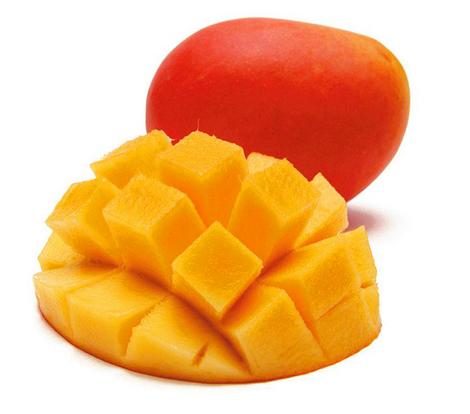Eye opening facts about mangoes
 Mango is a delicious and succulent fruit that has immense health benefits. The fruit has been tagged the ‘King of fruits’ because it is popular in every part of the world. It has a luscious taste and, beyond that, contains lots of vitamins and anti- oxidants. So you do not only enjoy the fruit but grow healthy too, when you take it.
Mango is a delicious and succulent fruit that has immense health benefits. The fruit has been tagged the ‘King of fruits’ because it is popular in every part of the world. It has a luscious taste and, beyond that, contains lots of vitamins and anti- oxidants. So you do not only enjoy the fruit but grow healthy too, when you take it.
Advertisement
For a very long time, mango has been a stomach soother because it contains an enzyme with stomach- comforting properties. Mango is rich in fibre and thus having one in your diet every day, you are sure of staying away from constipation, piles and spastic colon. This dietary fibre has positive effect on eliminating degenerative diseases such as cancers and heart ailments, according to research and studies published at Comprehensive Reviews in Food Science and Food Safety.
The fruit originated from Southern Asia, specifically Burma and Eastern India, almost 4,000 years ago. According to India concept, mango symbolises life (it is the national fruit of India).
It was introduced into Africa and Brazil by the Portuguese explorers. In Ghana, it is one of the main traditional fruits which are exported. Some of the varieties cultivated in Ghana are Keitt, Kent, Francine, Tommy Atkins, Palmer, Haden and Irvin. Here in Ghana, it is produced in larger quantities in Somanya in the Eastern Region because one is guaranteed dual harvest in a year, both during the major and minor seasons. It is one of the few areas in the world where the climate allows such a harvest.
You will be surprised to know that this common fruit is closely linked to skin enhancement. It helps lighten your skin colour and cures acne. Mangoes treat acne effectively as they open the clogged pores of the skin. Once pores are opened, acne formation eventually stops. One can easily do this by removing the mango pulp and applying it on the skin for about 10 minutes and washing them off.
Not only are the whole fruit and pulp useful, research has shown that the mango leaves are fantastic in fighting diabetes. Simply put 15 mango leaves in warm water and close it with a lid before going to bed. Drink the warm water on an empty stomach the next morning after filtering out the leaves. Regular practice of this method has shown tremendous results in diabetic patients.
Mangiferin from the leaves has been reported to possess antiinflammatory, diuretic, chloretic and cardiotonic activities and displays a high antibacterial activity against gram positive bacteria. It has been recommended as a drug in preventing dental plaques.
Mangiferin shows antiviral effect against type I herpes simplex virus, which could be useful in anti-herpes ointments.
The bark of the mango tree contains 16 – 20 per cent tannin and also mangiferine. It acts as astringent and is believed to possess a tonic action on the mucous membrane. It is anathematic, useful in hemoptysis, haemorrhage, nasal catarrh, diarrhoea, ulcers, diphtheria, rheumatism and for lumbrici.
Mango is very low in saturated fats, cholesterol and sodium. Apart from being rich in dietary fibre, it is an excellent source of Vitamin B6, Vitamin A and Vitamin C. It is rich in minerals like potassium, magnesium and copper. Ailments like heart disease, premature aging, cancer and degenerative diseases are due to free radicals which damage the cells. Mango contains powerful antioxidants such as quercetin, betacarotene and astragalin which neutralise these free radicals.
Mango is thought to bring about a reduced risk of colon and cervical cancer.
It is a rich source of beta-carotene, which the body can convert to vitamin A. This enhances the body’s immunity and makes it strong. It also contains beta-cryptoxanthin – a potential chemopreventive agent against lung cancer. As beta- cryptoxanthin is best absorbed by the body when eaten with fat, it is a good idea to eat mangoes as part of a meal, rather than on their own.
If you really want to look younger and vibrant, mango is your real treat because mango restricts ageing. The high amounts of Vitamin A and Vitamin C contained in mangoes produce collagen proteins inside the body. Collagens help preserve blood vessels and body connective tissues thereby slowing down the skin ageing process.
The digestive enzymes in mango help in digestion naturally. Bio-active ingredients in mango like esters, terpenes and aldehydes contribute in enhancing appetite and also improve digestion.
Vitamin B6 in mangoes is vital for maintaining and improving brain functions. These vitamins aid in the amalgamation of the major neurotransmitters that contribute in determining the mood and modification of sleep patterns. Mangoes adequately provide this vitamin naturally.
Mango does not leave out its benefits on pregnant women. Doctors often prescribe iron tablets during pregnancy. Iron supplements in such situations are extremely essential. In addition you can enjoy a healthy iron rich diet with the juicy mangoes. Mangoes are rich in iron that pregnant women usually require and also beneficial to people suffering from anaemia. The iron increases blood count in the body.
Article by Charles Kwadwo Adu
The writer is a biotechnologist with the Technical Department of Blue Skies Products Ghana Limited, Doboro-Nsawam.
e-mail: [email protected]



